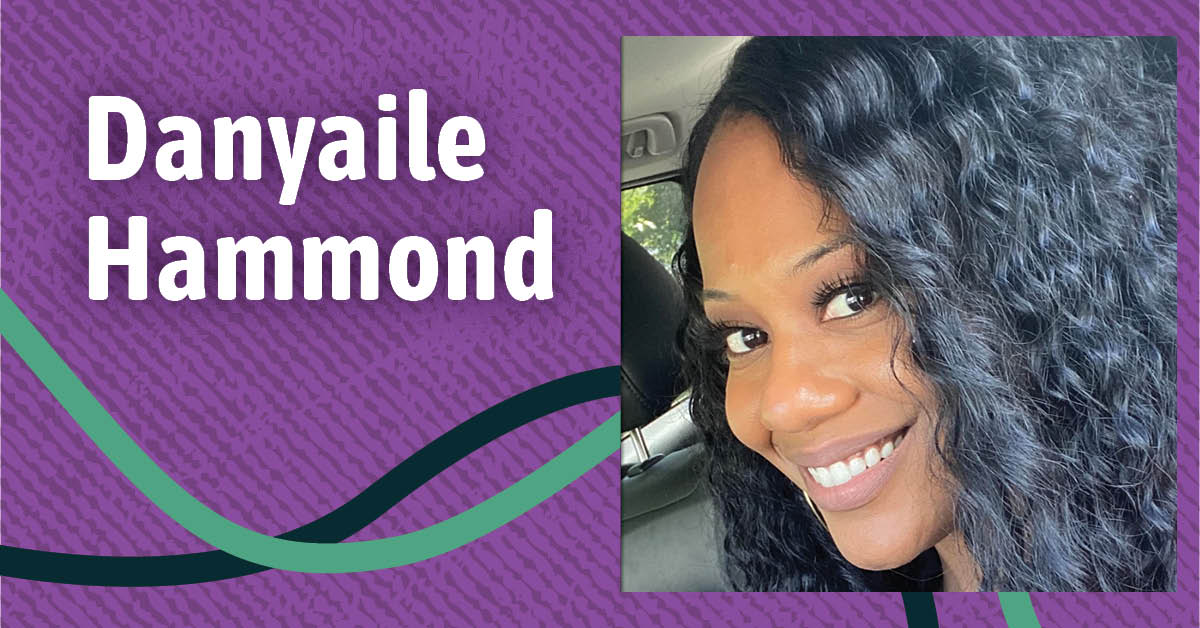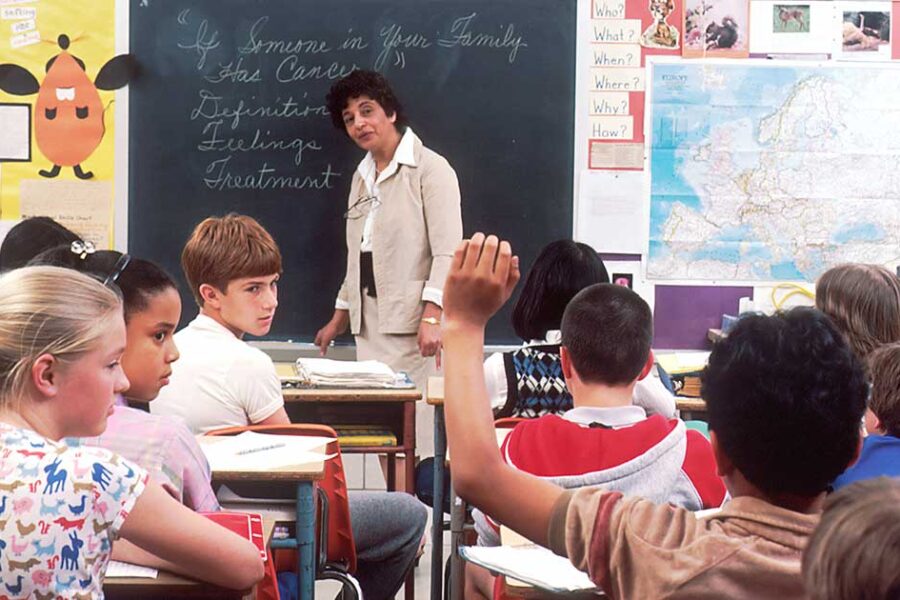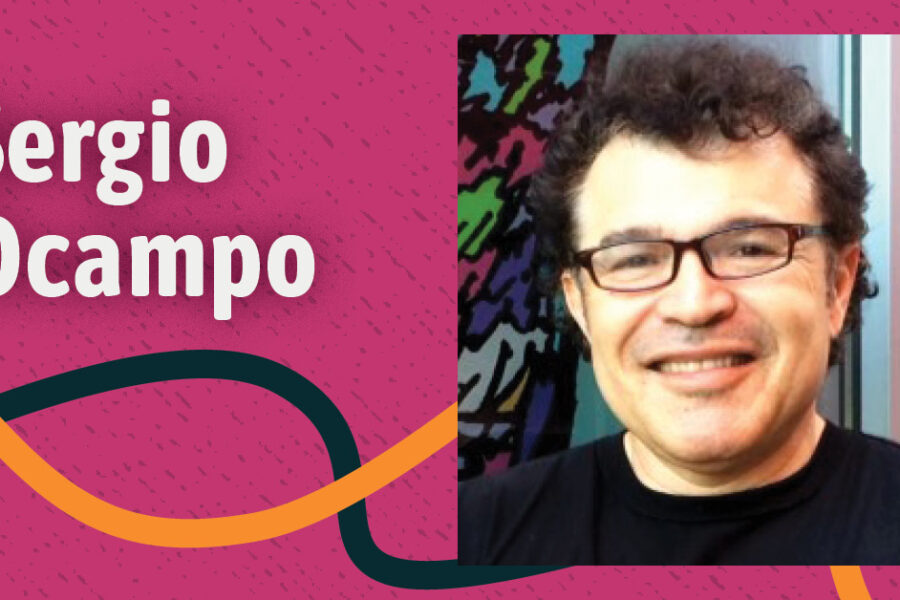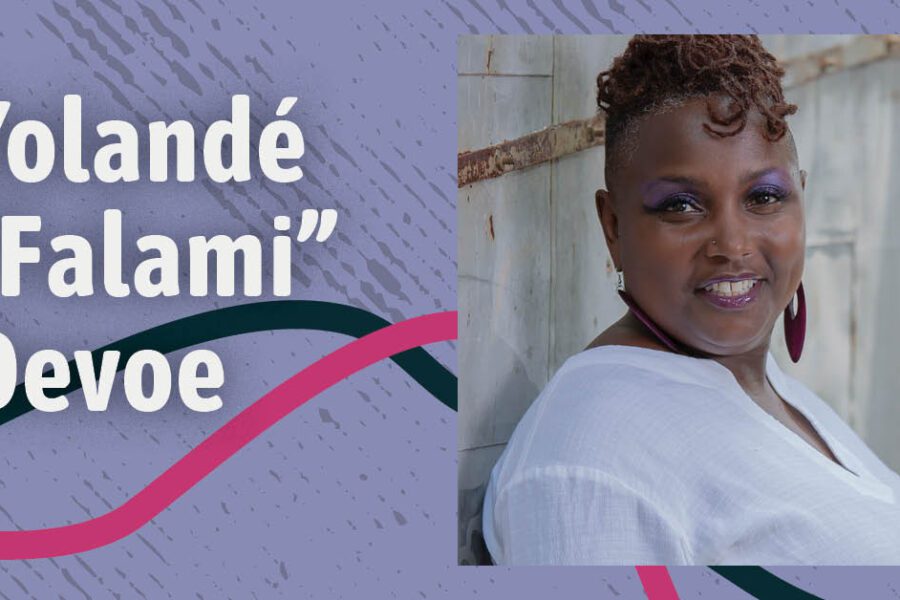If there is one word to describe Danyaile Hammond, it’s the word resilience. Hammond keeps moving forward—no matter what. In her view, there’s no point in getting stuck in the past.
Hammond is currently finishing a Master of Arts in Education at Antioch University Seattle, but as an undergraduate, she studied human development with a focus on adolescents and family studies. She worked to support herself during her undergraduate degree, but despite being busy, she always put herself in a position to help and support other people. And she brought this focus on service forward into her search for fulfilling work.
“Because I studied adolescents as an undergraduate, I thought I wanted to run a teen support group or work with families in some capacity,” Hammond says. So she found a job in that field and tried it out. But it wasn’t the right fit. “As I gained some work experience, I found it similar to dating,” she says. “I learned, okay, this is what I don’t like.”
She continued to work different jobs, and through each position, she began to understand herself more. She kept looking for jobs where she could support people, and each position led her closer to what she did want to do. And that path led her straight to Antioch.
Finding the Right Fit at Antioch
Hammond was in a transitory place in her life when she came to Antioch. She felt that her future lay somewhere between counseling and education, but she wasn’t one hundred percent sure what she wanted to do. As a working professional, she needed a school that would allow for flexibility and, most importantly, for her to explore who she was and what she wanted to do.
“I decided I wanted to go to Antioch,” Hammond says. “I had a cousin who went to Antioch, and she spoke highly of being able to do an individualized study and concentration. Even at the master’s level, I was still figuring out what I wanted to do, so I liked the idea of being able to explore.”
At first, Hammond set her sights on Antioch’s programs that lead to certification as a marriage and family therapist. But she missed the application deadline when her references fell through. At that point, it seemed like she might be missing out on higher education altogether. “I was freaking out,” she says. “I could have gone on to Seattle University, I got accepted there, but I wanted to go to Antioch.”
At this point in the story, remember that Hammond is resilient. When Hammond didn’t meet the deadline for Antioch’s therapy program, she shifted her perspective. “Everything that has felt like a failure has just been an opportunity to move in a different direction,” Hammond says. “And that new direction is better for me.”
Hammond found out that she could still make the deadline for Antioch’s Master of Education program. She decided to give it a try, and the rest is history.
When asked where her resilience comes from, she doesn’t skip a beat. “It comes from my failures,” she says. And in this case, her failure to join the therapy program turned out to be an invitation to press forward in a different direction—by learning to be a stronger educator.
Thriving—and Charting Her Own Course—in Education
The Masters in Education program proved to be a perfect fit for Hammond, in part because of its flexibility. One of the things she did early in her education was to consider all of the different subjects she wanted to study. “I was able to write down all the topics I was interested in exploring, topics like resilience and compassion, all these random themes,” she explains. And then she figured out how to fit them into her education. “I took a class on resilience,” she says, “and did an independent study on change in leadership.”
The Master of Education program gave her the freedom she was seeking. She split her time between counseling classes and education courses, with a sociological focus. Hammond credits Antioch’s staff and course material with helping her define and then meet her goals.
Hammond doesn’t let anything stop her, even something as life-changing as a pandemic. When she lost her job last year, her classes became a much-needed distraction from all the stress and noise. Even if it was over Zoom, showing up every day gave her something concrete to hold onto—some regularity during a time when it would have been easy to submerge herself and drown in reality TV.
“I’m grateful for the opportunity to continue with my classes, and my teachers have found a way to make it work,” Hammond says. Despite the stress of schooling during a pandemic, Hammond moved forward through the program and graduates in June 2021.
Diversity Work
In 2020, Hammond was awarded a diversity fellowship at Antioch. As a Diversity fellow, she introduced the Antioch community to the Under Our Skin series created by The Seattle Times. This series examined diversity-related topics, microaggressions, institutional racism, and white fragility, which sparked rich discussions that challenged assumptions and worked to build common ground.
Since the end of the fellowship term, she has continued to promote diversity and inclusion on the Seattle Campus by working closely with the current Diversity fellows and assisting them with their monthly diversity dialogue events. She is currently serving as the student leader for the AUS Black Student Union and the co-chair for the Diversity Council
“I’ve been active in and excited to engage in any and all conversations that help to move forward Antioch’s diversity and anti-racist goals,” Hammon says. “I believe to support all students effectively, it’s important to stay engaged in the institution’s equity-work, and that’s what I plan to continue to do.”
Helping Others Up Behind Her
 Being so supported as a student at Antioch has inspired Hammond to find work helping other students chart their own courses and thrive like she has. And she’s already finding success in this field, providing scaffolding to students through a more administrative role.
Being so supported as a student at Antioch has inspired Hammond to find work helping other students chart their own courses and thrive like she has. And she’s already finding success in this field, providing scaffolding to students through a more administrative role.
Her new job is, in fact, in student affairs right here at Antioch. Currently, she’s working to build a support network for students at the Antioch Seattle campus. The program, which will focus on peer-to-peer mentoring, is designed to allow students to engage with people who represent the community.
“My experience at Antioch confirmed that I could provide support to students in higher education,” Hammond says. “The help I received has shown me that it is possible to support students outside of the classroom.”
Hammond plans to continue her research on supporting nontraditional students in higher education. She will begin Antioch’s EdD in Educational & Professional Practice, Social Justice Leadership in the fall. Her long-term goal is to work in higher education leadership and administration—and hopefully doing it all on a beach with a perfect view of the ocean.






